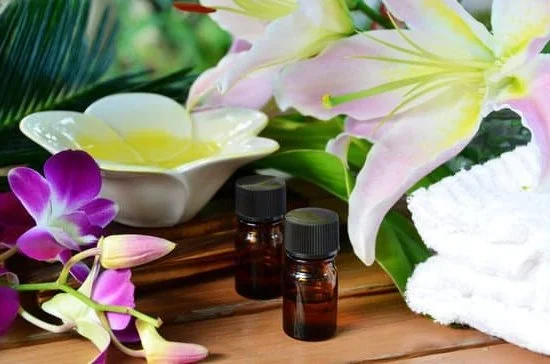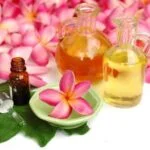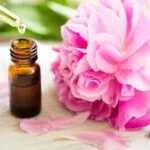Frankincense aromatherapy has been hailed for its mystical powers and therapeutic benefits. This ancient practice, rooted in history, holds a deep significance in various cultures around the world. From promoting physical wellness to nurturing mental and emotional health, frankincense aromatherapy offers a holistic approach to well-being.
Throughout centuries, frankincense has been revered for its enchanting aroma and profound healing properties. In this article, we delve into the origins of frankincense, unravel its chemical composition and benefits, explore its incredible healing properties, journey into serenity with its mental and emotional benefits, discover cosmetic uses for nourishing the skin and enhancing beauty, uncover how it soothes stress and anxiety, and explore the range of conditions it can address as a complementary therapy.
Frankincense aromatherapy goes beyond just a pleasant fragrance; it comes with an array of potential benefits for our mind, body, and spirit. Whether you seek physical rejuvenation or inner peace, incorporating this ancient practice into your daily routine can unlock a world of possibilities. Join us on this exploratory journey as we unleash the power of frankincense aromatherapy and embark on a holistic approach to well-being.
Unveiling the Ancient Origins
Frankincense, also known as olibanum, has a rich and storied history that dates back thousands of years. This fragrant resin is derived from the Boswellia tree, which is native to the Arabian Peninsula and the regions of North Africa. The use of frankincense can be traced back to ancient civilizations such as Egypt, Babylon, and Greece, where it held significant cultural, religious, and medicinal importance.
The Cultural Significance
In many ancient cultures, frankincense was highly valued for its spiritual and ceremonial significance. It was considered a sacred offering and was used in religious rituals and ceremonies. Frankincense was often burned as incense during prayer or meditation to create an atmosphere of reverence and spiritual connection. Its pleasing scent was believed to elevate the soul and facilitate communication with divine beings.
Medicinal Uses
Beyond its spiritual uses, frankincense also had important medicinal properties that made it highly sought after throughout history. In ancient Egypt, for example, it was widely used in the preparation of balms and ointments for wound healing and skin ailments. The resin’s antiseptic properties made it effective in preventing infections and promoting faster healing.
Similarly, frankincense was regarded as a valuable remedy for respiratory conditions such as coughs, colds, and asthma. Its expectorant properties aided in clearing mucus from the airways while soothing inflammation.
Moreover, frankincense was also used to alleviate digestive issues like indigestion, bloating, and flatulence. It promoted healthy digestion by stimulating gastric juices and improving gut motility.
Trade Routes
The demand for frankincense led to the establishment of extensive trade routes connecting ancient civilizations across continents. These routes formed important trade networks that not only facilitated the exchange of goods but also contributed to cultural exchange among nations.
Understanding the Science behind Frankincense Aromatherapy
Chemical Composition of Frankincense Essential Oil
Frankincense essential oil, derived from the resin of the Boswellia tree, is composed of a complex mixture of chemical compounds that contribute to its therapeutic properties. The main active components found in frankincense essential oil include alpha-pinene, limonene, and beta-caryophyllene. These compounds have been extensively studied for their potential health benefits.
Alpha-pinene, a major component of frankincense essential oil, exhibits anti-inflammatory and antimicrobial properties. It has been shown to reduce inflammation and pain in various conditions such as arthritis and asthma. Limonene, another significant compound found in frankincense essential oil, has potent antioxidant and anti-inflammatory effects. It helps protect against oxidative stress and reduces inflammation in the body.
Beta-caryophyllene is known for its analgesic properties, which can help alleviate pain caused by various ailments. Additionally, it acts as an anti-anxiety agent by interacting with receptors in the brain associated with anxiety and stress. These are just a few examples of the many bioactive compounds present in frankincense essential oil that contribute to its therapeutic effects.
The Health Benefits of Frankincense Aromatherapy
Frankincense aromatherapy offers numerous health benefits due to its chemical composition. One of the most well-known benefits is its ability to reduce inflammation. Inflammation is a common underlying factor in many chronic diseases such as arthritis, cardiovascular disease, and autoimmune disorders. By inhaling frankincense essential oil through aromatherapy, these inflammatory responses can be reduced or even prevented.
In addition to its anti-inflammatory properties, frankincense aromatherapy has been shown to boost immune function. Studies have indicated that certain compounds present in frankincense can stimulate immune cells and enhance overall immune response. This can help protect against infections and strengthen the body’s natural defense mechanisms.
Furthermore, frankincense aromatherapy has been found to have calming and relaxing effects on the mind and body. It can help reduce stress, anxiety, and improve sleep quality. The aroma of frankincense essential oil stimulates the limbic system, which is responsible for regulating emotions and memories. This makes frankincense aromatherapy an effective tool for promoting mental well-being and reducing symptoms of anxiety and depression.
Understanding the science behind frankincense aromatherapy provides insight into its chemical composition and the benefits it offers. The combination of bioactive compounds found in frankincense essential oil contributes to its anti-inflammatory, immune-boosting, and mood-enhancing properties. Incorporating frankincense aromatherapy into daily routines can promote physical wellness, mental clarity, and emotional balance. Harnessing the therapeutic potential of this ancient remedy can be a valuable addition to one’s holistic approach to well-being.
The Incredible Healing Properties
Frankincense aromatherapy is known for its incredible healing properties that promote physical wellness. The use of frankincense dates back thousands of years, and its efficacy in improving health has stood the test of time. Today, scientific research is beginning to unveil the chemical composition and benefits that make frankincense such a potent healing agent.
Studies have shown that frankincense contains various compounds, including alpha-pinene, limonene, and boswellic acids, which are responsible for its medicinal properties. These compounds possess anti-inflammatory, analgesic, and antimicrobial effects that can help address a range of physical ailments. For instance, the anti-inflammatory properties of frankincense make it beneficial for reducing inflammation in conditions like arthritis and asthma. Additionally, its analgesic effects can provide relief from pain associated with these conditions.
Furthermore, the antimicrobial properties of frankincense make it effective in fighting off harmful bacteria and preventing infections. It has been used topically to promote wound healing and prevent bacterial growth on the skin. Consuming frankincense orally or inhaling its aroma may also support overall immune function by boosting white blood cell activity.
In addition to these specific benefits, frankincense aromatherapy has been found to have a general calming effect on the body, supporting stress reduction and overall well-being. It can also aid in sleep by promoting relaxation and easing anxiety. By addressing both physical ailments and mental states, frankincense offers a holistic approach to promoting physical wellness.
Journey into Serenity
Frankincense aromatherapy is not only beneficial for physical wellness, but it also has profound effects on mental and emotional well-being. The aromatic compounds present in frankincense essential oil have been used for centuries to promote a sense of calm and tranquility, making it an excellent tool for relaxation and stress relief.
One of the main mental benefits of frankincense aromatherapy is its ability to reduce anxiety and promote a sense of peace. Studies have shown that inhaling the scent of frankincense can help activate certain receptors in the brain that are responsible for regulating emotions and mood. This can be particularly useful for individuals who struggle with anxiety disorders or chronic stress.
In addition to reducing anxiety, frankincense aromatherapy has also been found to enhance mood and lift spirits. The aroma of frankincense essential oil stimulates the limbic system in the brain, which plays a key role in regulating emotions. This can lead to an improved overall mood and greater emotional well-being.
When it comes to emotional benefits, frankincense aromatherapy is also known for its ability to aid in spiritual practices such as meditation and prayer. The calming properties of frankincense can help bring about a sense of focus, clarity, and mindfulness during these practices, allowing individuals to deepen their spiritual connection.
| Mental Benefits | Emotional Benefits |
|---|---|
| Reduces anxiety | Enhances mood |
| Promotes relaxation | Aids in spiritual practices |
Nourishing the Skin and Enhancing Beauty
Frankincense aromatherapy not only offers a range of physical and mental health benefits, but it also has remarkable properties for nourishing the skin and enhancing beauty. In ancient times, frankincense was considered a precious cosmetic ingredient and valued for its ability to promote youthful-looking skin. Today, this aromatic resin continues to be utilized in various skincare products and therapies.
One of the main reasons why frankincense is popular in the beauty industry is its ability to rejuvenate and tighten the skin. The chemical composition of frankincense includes components like alpha-pinene and limonene, which are known for their anti-inflammatory and antioxidant properties. These compounds help protect the skin from damage caused by free radicals, reduce signs of aging such as wrinkles and fine lines, and improve overall skin tone and elasticity.
Frankincense is also effective in promoting healthy cell regeneration. This can be particularly beneficial for those with acne-prone or blemished skin. The resin’s antimicrobial properties help fight bacteria that can lead to breakouts, while its anti-inflammatory effects help calm irritated skin. Incorporating frankincense into a skincare routine may help minimize the appearance of acne scars and promote a more radiant complexion.
To experience the cosmetic benefits of frankincense aromatherapy, there are various ways it can be incorporated into your daily routine:
- Facial steam: Add a few drops of frankincense essential oil to a bowl of hot water. Cover your head with a towel and lean over the bowl, allowing the steam to open up pores and infuse your skin with the therapeutic properties of frankincense.
- DIY face mask: Mix a few drops of frankincense essential oil with coconut oil or another carrier oil of your choice. Apply this mixture to your face, leave it on for about 15 minutes, then rinse off with warm water. This mask can help moisturize and rejuvenate your skin.
- Body lotion: Look for skincare products that contain frankincense essential oil or resin extract. Applying a frankincense-infused lotion after showering can help nourish and protect your skin throughout the day.
Harnessing the powers of frankincense aromatherapy can not only promote physical and emotional well-being but also enhance your beauty regime. Whether you choose to use it in facial steams, mask recipes, or skincare products, incorporating frankincense into your daily routine can lead to healthier, more radiant skin.
Soothing the Inflamed Soul
Frankincense aromatherapy has long been known for its ability to soothe and calm the mind, making it an excellent tool for relieving stress and anxiety. This section will delve into the specific ways in which frankincense aromatherapy can help ease emotional turmoil and promote a sense of peace and serenity.
One of the main reasons frankincense is effective in reducing stress and anxiety is its ability to reduce inflammation in the body. When we experience stress, our bodies release inflammatory chemicals that can cause physical discomfort and exacerbate feelings of unease.
Frankincense contains compounds such as boswellic acid that have anti-inflammatory properties, which can help reduce these symptoms. By inhaling frankincense essential oil, these beneficial compounds can be absorbed into the bloodstream and work to calm both the body and mind.
In addition to its anti-inflammatory properties, frankincense also has sedative effects on the nervous system. The scent of frankincense alone has been found to induce a state of relaxation and tranquility, making it an ideal tool for combating anxiety.
Its calming effects on the nervous system can help slow down racing thoughts, promote deeper breathing, and release tension held within the body. Incorporating frankincense aromatherapy into your daily routine through diffusing or topical application can provide a consistent source of relaxation throughout the day.
Overall, frankincense aromatherapy offers a natural and holistic approach to soothing stress and anxiety. Whether you are looking for a way to unwind after a long day or seeking relief from chronic feelings of unease, incorporating this powerful essential oil into your self-care routine can provide significant benefits for your mental well-being.
Complementary Therapy for Various Ailments
Frankincense aromatherapy has been used for centuries as a complementary therapy for various ailments. The therapeutic properties of frankincense essential oil make it a versatile and effective remedy for a wide range of conditions. From respiratory issues to digestive problems, frankincense aromatherapy can address multiple health concerns.
One of the key benefits of frankincense aromatherapy is its anti-inflammatory properties. The active compounds in frankincense, such as boswellic acids and terpenes, have been found to reduce inflammation in the body. This makes it particularly beneficial for individuals suffering from conditions like arthritis, asthma, and inflammatory bowel disease.
In addition to its anti-inflammatory effects, frankincense aromatherapy also has immune-boosting properties. It can help strengthen the immune system and support overall well-being. Research has shown that frankincense essential oil has antimicrobial properties that can help fight off infections and promote faster healing.
Another condition that can be addressed with frankincense aromatherapy is mental health disorders. Studies have demonstrated that inhaling the aroma of frankincense can have anxiolytic (anti-anxiety) and antidepressant effects. It can help reduce stress levels, improve mood, and promote relaxation. Individuals struggling with anxiety, depression, or insomnia may find relief through the use of frankincense essential oil.
| Condition | Potential Benefits of Frankincense Aromatherapy |
|---|---|
| Arthritis | Reduces inflammation; relieves pain |
| Asthma | Relieves respiratory congestion; eases breathing |
| Inflammatory bowel disease | Reduces inflammation in the digestive tract; eases symptoms |
| Infections | Has antimicrobial properties; supports the immune system |
| Anxiety | Promotes relaxation; reduces stress and anxiety levels |
| Depression | Has antidepressant effects; improves mood and emotional well-being |
Practical Application
Frankincense aromatherapy can easily be incorporated into your daily routine, allowing you to experience its numerous health benefits. Here are some practical ways to use frankincense essential oil in your daily life:
- Diffusion: One of the simplest and most effective methods of enjoying frankincense aromatherapy is through a diffuser. Add a few drops of pure frankincense essential oil to a diffuser filled with water and let the aroma fill the air. This can create a calming and uplifting atmosphere, promoting relaxation and mental clarity.
- Inhalation: Alternatively, you can inhale the scent of frankincense directly from the bottle or place a few drops on a tissue or cotton ball and carry it with you throughout the day. Inhaling frankincense aroma can help alleviate stress and anxiety while supporting emotional balance.
- Massage: Incorporating frankincense essential oil into your massage routine can enhance relaxation and promote physical healing. Dilute a few drops of frankincense oil in a carrier oil such as coconut or jojoba oil, then gently massage onto the skin for a soothing experience.
- Skincare: Frankincense is known for its rejuvenating properties for the skin. Create your own skincare products by adding a few drops of frankincense essential oil to your facial cleansers, toners, or moisturizers. This can help improve skin tone, reduce blemishes, and promote a youthful complexion.
- Bathing: Transform your bathing experience into a therapeutic ritual by adding several drops of frankincense essential oil to warm bathwater. The steam from the bath will release the aromatic molecules of the oil, creating an environment that promotes relaxation and eases muscle tension.
Remember to always use high-quality, pure frankincense essential oil for maximum benefits. Furthermore, it is important to consider individual sensitivities and perform a patch test before applying directly to the skin. By incorporating frankincense aromatherapy into your daily routine with these practical applications, you can unlock the full potential of this ancient remedy for a holistic approach to well-being.
Conclusion
In conclusion, frankincense aromatherapy offers a multitude of benefits for physical, mental, and emotional well-being. By understanding the ancient origins and chemical composition of frankincense, we can appreciate its incredible healing properties. From promoting physical wellness to soothing stress and anxiety, this powerful essential oil has the ability to address a range of conditions.
One of the key aspects that sets frankincense aromatherapy apart is its holistic approach to well-being. By incorporating this practice into our daily routines, we can nourish our skin, enhance our beauty, and experience profound mental and emotional benefits. Whether it is through diffusing frankincense oil in our living spaces or using it as an ingredient in skincare products, its versatility makes it accessible to anyone seeking a natural way to improve their overall health.
Furthermore, the practical application of frankincense aromatherapy is simple and customizable. It can be easily incorporated into various self-care rituals such as meditation or yoga practices. By taking the time to engage with these rituals and create moments of tranquility in our busy lives, we can tap into the true power of frankincense aromatherapy.
Frequently Asked Questions
How do you use frankincense aromatherapy?
Frankincense aromatherapy can be used in a few different ways. One common method is to use a diffuser, where a few drops of frankincense essential oil are added to water and then dispersed into the air as a fine mist. This allows the scent of frankincense to fill the room and be inhaled.
Another way to use it is by applying diluted frankincense oil directly to the skin, such as on the temples or wrists, for a more direct inhalation experience. Some people also find benefit from using frankincense-infused products like candles or incense sticks, which release the scent when burned.
What does smelling frankincense do for you?
Smelling frankincense has been known to have various effects on individuals. For many, it has a calming and grounding effect on both the mind and body. The scent of frankincense has been used in spiritual practices for centuries due to its ability to induce a sense of relaxation and peace.
It can help promote deep breathing and relieve anxiety or stress by helping individuals feel more centered and balanced. Additionally, some people find that smelling frankincense can enhance focus and concentration, making it beneficial during meditation or when trying to work or study.
What does frankincense oil do to the brain?
Frankincense oil has shown some potential effects on the brain through its chemical compounds. Research suggests that certain components found in frankincense oil may interact with neurotransmitters in the brain, such as gamma-aminobutyric acid (GABA), which helps regulate mood and promotes feelings of calmness.
It has also been found that inhaling frankincense oil may have an impact on increasing oxygen flow to the brain, potentially improving cognitive functioning and promoting mental clarity. However, it is important to note that further research is needed to fully understand the specific mechanisms through which frankincense oil affects the brain.

Are you looking for a natural way to improve your health and wellbeing?
If so, aromatherapy may be the answer for you.





